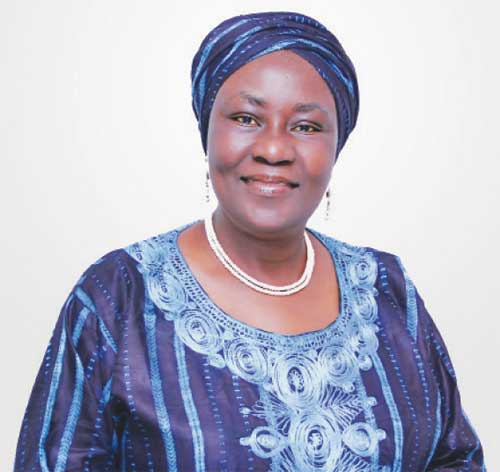By Prof Remi Sonaiya
New skills are needed for living in the 21st century and for our sustainable development. These skills, most certainly, will need to be taught; thus, we must constantly underscore the centrality of education. Nigeria needs to be transformed into a knowledge-based society. The latest developments concerning Big Data, the Internet of Things, Cloud Convergence, etc. are realities we must contend with, although we are still far behind as far as those highly technical matters are concerned.
It seems that formal education has failed us. In spite of years of Western education and our exposure to the scientific method which should be understood as the search for the truth concerning the nature of the world in which we live through well identified processes of investigation of phenomena, yet this has not led to our finding solutions to the many ills that plague us or to effectively conquering our environment. Malaria continues to wreak havoc on our populations, especially our children; we are unable to provide for our teeming population the basic necessities like water and electricity. More importantly, we cannot decide which world we will live in – whether the scientific world of school or our “Africa Magic” world in which people enter into trees and witches exert evil power over people by remote control.
There are skills which our current system of education has failed to transmit to us, and one could illustrate with a couple of examples. Our inability to begin any program on time is a result of our failure to acquire planning and organisational skills. These skills require that the amount of time needed for the execution of every single aspect of an event be accurately determined and therefore planned for. However, maybe the real issue is the failure to recognize the importance of timeliness.
Another skill which we have failed to acquire, along with this general lack of organisational skills, appears to be that of logical reasoning. We fail to see how things connect and so are incapable of making adequate preparation for the different stages of an activity we wish to embark upon. Take the clearing of gutters, for instance. Do we see a worker clearing a gutter along a public street who has a receptacle into which the debris from the gutter would be deposited and carried away? No; we clear our gutters onto the roadside. Then the rains come or the wind blows and all the garbage is back where it came from.
What could be done to teach us these skills in which we are desperately lacking? My thinking is that we need to completely overhaul the curriculum in our schools, right from the primary school. We are not teaching our children what they need to learn. The Federal Ministry of Education recently is currently advocating the introduction of a subject on financial management at the primary school level! We multiply the subjects at the primary and secondary schools, and all we achieve is rote learning; our children have not learned to reason logically and scientifically, nor acquired critical and problem-solving skills.
Given the failure of the government in this respect, those in the IT sector could contribute immensely to the acquisition of such skills by developing Apps which could be used to teach them. It has often been said that it is in spite of our government and leaders that we Nigerians are managing to bring about some level of development in a few areas of endeavour like the entertainment industry and IT. So, for example, some of our IT gurus could collaborate with researchers and experts in the relevant fields in our universities to develop computer applications to teach problem solving and organisational skills. Skills of precision and accuracy of measurement are equally needed. Our normal way of functioning is to approximate and manage things, as demonstrated by most of our mechanics, vulcanisers, carpenters, bricklayers, tailors, etc. Would that way of conducting business be compatible with a technology-powered economy? Indeed, how could technology be brought in to assist these artisans? There are developments along these lines already, no doubt, but we need to do much more in order to fast-track our development.
We should equally be concerned about developing our so-called cottage industries as well as the small and medium-scale enterprises. It is doubtful, if we are honest with ourselves, that we can immediately be catapulted into the developed nations’ world of robotics and so on, except if we simply import everything which they have already developed. The reality, however, is that we no longer have the foreign exchange to do that, even if we wanted to. Our immediate priority, therefore, might be to deploy technology in an innovative manner in order to give a renewed lifeline to our economy – and that can most readily be achieved at the level of the small and medium scale enterprises and our cottage industries. Computer scientists should work with them and help to enhance their capacities in their various areas of endeavour.
There are various areas in which innovative technology can be deployed for the development of our nation. What is key is that our teeming masses of impoverished, ill-served citizens are eagerly waiting for help, for empowerment. Nigerians are not lazy; that is something that can be boldly asserted. But the ineptitude, greed and visionless leadership which has been inflicted upon us for decades have made it impossible for the vast majority of us to actualise our potential and live dignified and productive lives.













